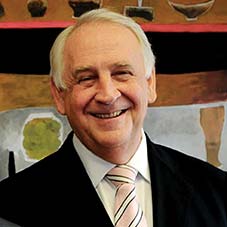What can the business community do to promote peace – and why should it be interested in doing so? After all, is the business of business not business – rather than peace-making?
The answer, of course, is that business is about more than business: today it is widely accepted that there is a triple bottom line – that businesses do not have a responsibility only to their shareholders but also to the environment and to the well-being of the broader community within which they operate. As it happens, this involves business not only doing the right things – but also promoting its own interests: in the final analysis peace, social justice and environmental sustainability are also good for business.
Business’s main contribution to human well-being still lies in the role that it plays in promoting economic growth; in providing employment and in paying the taxes that governments use to provide social, education and health services. Despite the current conflicts in the Middle East, the 16 years since the beginning of the millennium have been the most peaceful period in human history. Conflict deaths have dropped from 300 per hundred thousand during World War II to about three per hundred thousand now. There have hardly been any wars between countries during the past decade: nearly all conflict now takes places between religious, ethnic or linguistic communities within the same countries.
Nevertheless, conflict continues to disrupt the lives of millions of people throughout the world – particularly in Syria, Iraq, Afghanistan and in several African countries. Neither is there any room for complacency:
- states with nuclear weaponry still possess sufficient nuclear weapons to destroy the world many times over;
- tensions continue to simmer because of North Korea’s nuclear threat to its neighbors;
- there is growing confrontation between Russia and NATO – particularly in the Ukraine;
- China is flexing its muscles in the South China Sea;
- There are threats to the fragile constitutional settlement in South Africa;
- ISIS and radical Islamists continue to plot terrorist attacks in western countries and foment violence in an arc from West Africa to Afghanistan.
Business can play a positive role by understanding the causes of conflict that are often found in places of poverty, ignorance, injustice and where there is an inability for people from different racial, cultural and religious communities to coexist peacefully within the same societies. Businesses can combat poverty by helping to create the circumstances in which free markets can flourish. To achieve this, they should encourage governments to adopt sound fiscal and economic policies.
The unhappy reality is that if governments do not get the economic and fiscal basics right it will be difficult to create conditions that are conducive for economic growth and social development. Businesses can help to combat injustice by supporting NGOs that are working for the establishment of sound systems of law, presided over by independent courts – to protect the fundamental civil and political rights and freedoms of citizens. They should also work for sound governance, based on accountability, the integrity of government officials and the elimination of corruption.
In particular, businesses should work for the entrenchment of democratic systems. It is a simple fact that genuine democracies do not go to war against other democracies.
Conflicts are easy to start – but much harder to end. It’s difficult to help those caught in war zones – such as the victims of the present conflicts in Syria and Iraq. The most we can do is to assist refugees and help as much as we can those who cannot escape.
Imagine the situation had business been able to help peace-makers prevent the conflict in the first place. Imagine how different the situation would have been had peacemakers been able to persuade then-President George W. Bush not to invade Iraq in 2003.
Perhaps the best example of how business can play a role in promoting peace is that of Alfred Nobel. Although he made his fortune developing explosives that were subsequently used in warfare, he used this fortune to promote peace through the establishment of the Nobel Peace Prize. For more than 100 years the prize has inspired and encouraged peacemakers throughout the world. Every year it has continued to focus international attention on threats to peace and on the need to resolve differences through peaceful means. Mankind has, indeed, made spectacular progress during the past seventy years – we are now living in the most peaceful era in history. However, if we wish to continue to make this progress it will be essential to address the threats to peace whenever and wherever they may arise. Business cannot, and should not, sit on the sidelines of this process.
www.nobelforpeace-summits.org




































